The Oil & Gas industry is synonymous with the word ‘extreme’ but in many ways that term doesn’t translate well when it comes to keeping up with the latest of technology trends.
While the environments that the energy industry operate in might be considered so, the ability to tap into emerging trends is on the opposite side of the spectrum compared to other industries like Manufacturing.
So what should the oil and gas and energy industries be looking toward in the future to maintain its own extreme, competitive advantage?
Internet of Things (IOT) and Edge Computing – Connecting the Sea for Extreme Operational Efficiency
An industry buzzword that’s been around for a while now. IOT is picking up pace with the interest from the energy sector as it looks to harness data from an array of sensors whether from tidal, wind, or traditional oil and gas pipelines.
The attraction of receiving real-time, operational data from machines and large, inaccessible equipment is huge as companies seek to minimise or predict failure, and maximise efficiencies and uptime.
But let’s scrutinise the promise of IOT further, because it’s not as easy as it appears to extract the value required.
For example, there are approximately 3,500,000km of pipeline across the World on and offshore. Beneath the waves an estimated 70% are already at or beyond design life.
While on land both WiFi and 5G are touted as the standard for connecting IOT-enabled devices, and for harvesting data in real-time the reality facing the energy industry is that 70% of the World’s surface is water, and those technologies don’t work subsurface which would enable the internet of things in the extreme environments they operate in.
This applies for smart cities also where existing infrastructure is buried below ground.
Asset integrity management is a big concern for the oil industry today as costs soar towards an asset’s end of life while production declines, and this doesn’t take into account the reputational cost and damage of having a major failure subsea, the environmental impact and costs associated with loss of production and revenue.
Many installations are in late life but with little understanding of actual pipeline condition and integrity meaning a loss in revenue and production if longevity cannot be extended.
This is a critical use case of IOT technology, especially Subsea Internet of Things where the retrofitting of wireless monitoring devices and sensors can greatly increase the amount of data required for effective decision making at this level; data including pressure, temperature, fatigue, corrosion, and vibration and flow from sensors which form part of an Edge network of devices which can not only communicate with each other in real-time but offer analytical capabilities meaning the cost of data transfer from thousands of meters below the surface is greatly reduced for efficiency.
Blockchain – Asset Management taken to the Extreme
Asset integrity is only one key aspect of maintaining an efficient, productive and compliant energy network. Asset management at this scale is a headache for many engineers, CTOs and CFOs responsible for production.
How can you track thousands of components, their lifespans, their repairs and replacements, the costs associated and third party invoices effectively and in a way which can’t be altered or mismanaged?
Blockchain offers an answer. Although the underlying aspect of Blockchain is purely a distributed ledger and therefore a backbone infrastructure technology (and in reality, very boring) the fact that an asset’s lifecycle, service and test records can be recorded and traced on blockchain offers greatly enhanced transparency and auditability.
If a critical component is purchased, everything about that item has already been recorded, from the materials used, their original source, down to who manufactured it, and who signed off on the quality testing.
From that point on, where the part is used, what it is used for, when it was operational, any failures recorded, any repairs recorded, to its eventual decommissioning is stored on the digital ledger, completely immutable to change or alteration.
Digital Twins – Using IOT and Real-Time Data for Extreme Visualisation
The concept of a Digital Twin along with the Internet of Things again is not a new concept. A Digital Twin refers to the digital replica of physical assets (physical twin), processes, people, places, systems and devices that can be used for various purposes.
The digital representation provides both the elements and the dynamics of how an Internet of things device operates and lives throughout its life cycle.
The idea of creating a digital representation of an asset or device combined with the real-time sensor data can be extremely inviting for many industries and the energy sector is no exception.
Being able to visualise an entire installation, down to pumps, motors, pipes, valves, compressors, turbines and much more, along with real-time data associated with their operation can be an engineer’s dream however the balance in question is being able to receive that information at critical moments in a timely and meaningful way.
This is fine for where remedial work or understanding the behaviour of a component or machine where time is not critical is perfect for the application of this technology.
Walking through the exploded view of a huge turbine using virtual or augmented reality works very well in scenarios where there are no time constraints.
But every engineer knows that you simply can’t beat being presented with a dashboard in real-time.
For all new technologies, context is absolutely key in the correct implementation and the energy sector is no exception to this rule.
However, many Digital Twin initiatives fall short simply because they do not take into account subsea infrastructure, and operational decisions are being based on only half the picture.
Remember to take into account real-time data from your offshore structures.
Virtual/ Augmented Reality – Bringing Data Closer to the User in Extreme Conditions
Imagine being able to walk through a pipeline installation without physically being there.
Imagine being able to walk through a huge wind turbine and all its internal components and seeing them operate in real-time.
Imagine being a diver meters below the surface of the ocean, and having information relayed and overlaid in real-time via your mask or helmet from wireless sensors instead of holding a display and attaching it to a wired sensor installation.
Imagine this same capability for an ROV operator and control screen.
All this is possible with augmented and virtual reality. While the technology itself struggles to find a foothold in the real world of the consumer, on an industrial scale it is flourishing as it finds new ways to present information to a user that frees their capacity to do other tasks, or instructs them on how to repair or monitor complex machinery in extreme conditions without the need for manuals or guides.
Artificial Intelligence – Extreme decision making made possible
No industry can escape the rise of the machines, or the capabilities that machine learning and advanced algorithms can bring to automating decision making and making sense of petabytes of data in an instant.
As time becomes as much a critical commodity as revenue, A.I. can aid in the analysis of real-time energy production and asset lifecycles, GIS data for site planning, aiding in faster operational decision making, invoicing and order to cash automation, predictive maintenance of assets and the planning of repairs with minimal interruption to production, automation of ROV equipment without the need for operators, the list can be endless if applied correctly.
Again, it’s key here to reiterate that this trend goes hand in hand with edge computing, and the movement and processing of data and critical information at the source (in most cases, at sensor level) rather than at the datawarehouse will become the norm and most efficient method of implementation in the future.
What we must bear in mind is that A.I. is nothing more than algorithms that can learn from their inputs and adapt, and for that to happen it needs to be given the right data to make those decisions in the types of scenarios listed.
The oil and gas industry has a big task ahead before thinking about the implementation of machine learning solutions; how can it get that data out from installations and equipment in extreme conditions such as subsea locations?
What data is absolutely critical to make an A.I. solution viable and is it available? How ‘clean’ is that data the organisation holds? The old saying ‘Garbage In/ Garbage Out’ has never been truer than today when discussing the potential of A.I.
There we have it, 5 extreme trends for the next 5 years to think about. But perhaps there is a sixth trend when you consider all five at once, because in combination they are extremely powerful and interconnected, and every one is about the underlying value that can be extracted from the data generated by the business.
And they do say that ‘data’ is the new oil after all….
Theo Priestley is the Chief Marketing Officer at WFS Technologies, and a world renowned technology futurist.
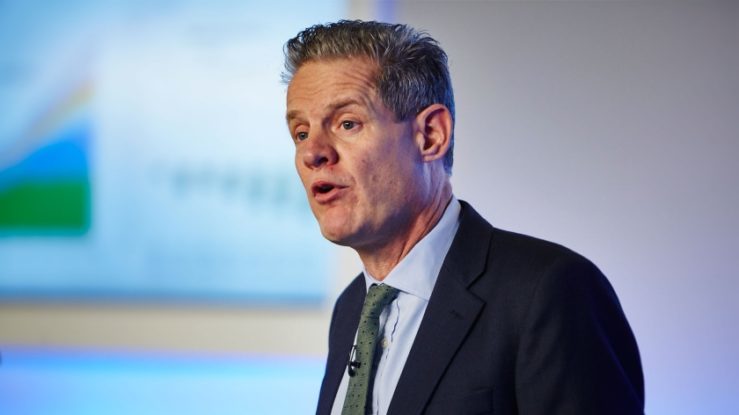

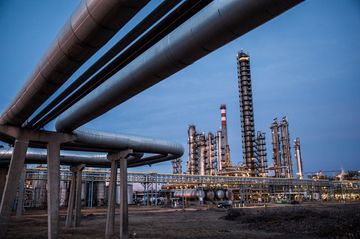

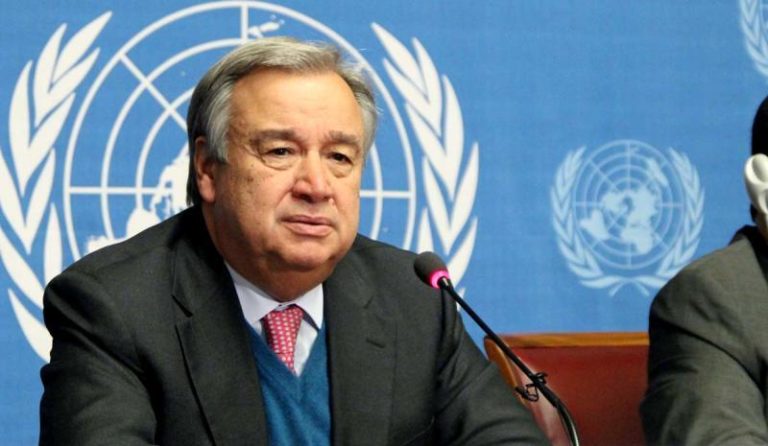



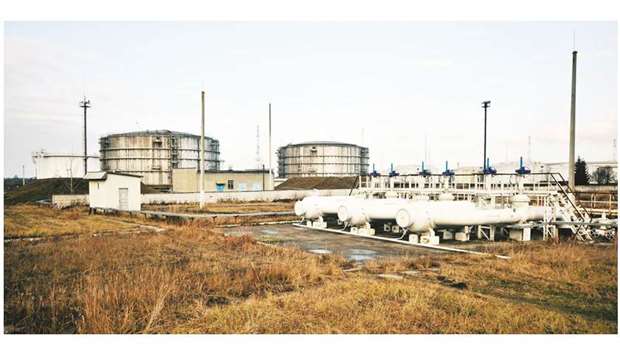


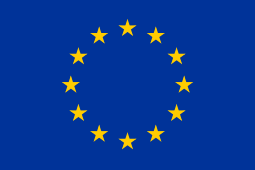
STOCKHOLM – Earlier this month, a bleak global assessment of the shocking state of life on Earth made headlines worldwide. According to the report by the Intergovernmental Science-Policy Platform on Biodiversity and Ecosystem Services (IPBES), about 12% of all known animal and plant species are now threatened with extinction. Worse still, humanity is destroying entire habitats, and with them the web of life that supports societies and economies. Unsurprisingly, the findings were greeted with despair.
As IPBES scientific contributors and co-authors of the report, we face this news every day. It is impossible not to react emotionally to the scale of destruction humans are inflicting on the natural world. Yet the report also goes to great lengths – although this has been less widely reported – to identify ways to reverse this alarming trend. To succeed, however, humans need to undertake four major transformations.
First, we must substantially change our legal, economic, and technological systems. It is true, as the report emphasizes, that protected areas and legislation have prevented the extinction of many species, such as the panda. And further conservation steps are clearly needed. But humans need to make far more fundamental changes.
The IPBES report therefore explores numerous possible economic development paths for the world to 2050, and identifies ways to protect nature while increasing human prosperity. The measures it proposes are not the usual suspects, such as reducing deforestation or curtailing the exploitation of species; instead, they address the causes of these problems.
Here, the report concludes that sustaining Earth’s living systems requires us to redefine what a good quality of life means. Societies need to get away from the idea that a good and meaningful life is possible only through ever-increasing material consumption. This is clearly absurd. Wellbeing has been stagnating in many developed countries, even as consumption continues to increase.
Solutions could instead build upon new social and political narratives showing that happiness goes hand in hand with lowering total consumption and cutting waste. Reducing gender and wealth inequalities also improves a society’s wellbeing, as Nordic countries have shown. And, as IPBES recognizes, indigenous and local knowledge can reveal other ways of managing ecosystems sustainably.
Undertaking such shifts will not be easy. The world must urgently adopt a new economic paradigm that goes beyond a singular focus on GDP. This is beginning to happen. New Zealand, for example, has announced its first “wellbeing budget,” while China is continuing to develop measures of “green GDP.”
Second, the world must transform its food system. The way we currently produce and consume food is a major cause of ecological destruction. Yet feeding a growing global population a healthy diet without damaging the Earth is not only possible, but will also improve people’s quality of life. The IPBES report highlights several sustainable agricultural practices, such as integrated pest and nutrient management, organic farming, soil and water conservation, and measures to improve animal welfare.
One of the IPBES report’s development paths to 2050 is in line with the findings of the separate EAT-Lancet Commission reporton sustainable food systems. That report, released earlier this year, concluded that the world could feed ten billion people a healthy diet – with less meat and dairy products, and more nuts and vegetables – without needing to use more land.
But these actions on their own will not be enough. One-third of all food produced never makes it to the plate. We support calls for food waste to be slashed by 50% by 2030, and, encouragingly, countries including France, Germany, and Italy have taken steps to prevent supermarkets from discarding unsold food.
Third, we must treat the world’s oceans far better. Industrial fishing now extends to 55% of the world’s ocean area, and just 3% is free from human pressure. The ocean is increasingly used as a dumping ground for sewage, plastic, excess fertilizers, and other toxic pollutants. But research shows that managing the oceans sustainably can increase fish stocks and economic value. And the UN aims to reach agreement next year on new international regulations to protect the oceans.
Finally, the world must think carefully about the best ways to tackle climate change. The timber and agriculture industries – in particular the production of soy, palm oil, and beef – are causing rapid deforestation, with devastating consequences for the stability of the Amazon rainforest, the world’s climate, and many species. But attempts to combat global warming through large-scale planting of bioenergy crops, along with reforestation and afforestation, could greatly harm biodiversity and fragile ecosystems. Well-planned measures, on the other hand, could enhance biodiversity, improve soil quality, and capture and store carbon dioxide.
Protecting the living world calls for systemic changes that go beyond narrowly focused policies on biodiversity or climate. Fighting poverty and inequality are essential parts of the solution, too. But these transformative steps will happen only if we start treating the situation like the crisis it is, as Swedish climate activist and student Greta Thunberg has urged.
In recent weeks, both the UK and Irish parliaments have declared climate and nature emergencies, and we urge other countries to do the same. In 2020, a “superyear” for international environmental policy – with major summits on biodiversity, climate, and the oceans – the UN should mark its 75th anniversary by declaring an emergency for the planet to accelerate action to ensure long-term sustainability.